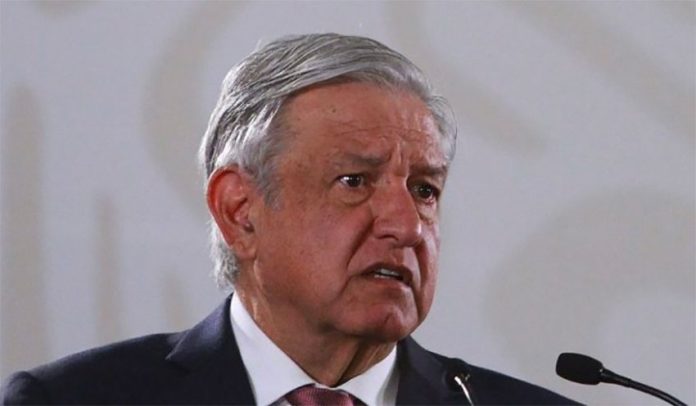Business gloom has been so pervasive in Mexico since Andrés Manuel López Obrador won the presidency in 2018 on a strident anti-establishment platform that a recent burst of optimism about the country’s growth prospects feels like a ray of sunshine breaking through the clouds.
Last October, the International Monetary Fund was forecasting that Mexico would grow just 3.5% in 2021 after shrinking by a seasonally adjusted 8.5% last year during the pandemic. Yet as the economy rapidly opens up, coronavirus infections remain low and the effects of the giant U.S. stimulus ripple across the border, many economists and bankers here now see Mexico expanding almost twice as fast.
“The combination of continued reopening with strong remittances and a U.S.-led global recovery has allowed Mexico to close the gap with other Latin American economies, outperforming all of them in the first half of 2021,” said Marcos Casarín, chief economist for the region at Oxford Economics. The consultancy’s recovery tracker shows Mexico is returning to pre-pandemic levels of activity more quickly than any Latin American country.
“Mexico will grow 6% this year and it could be higher,” said former finance minister and academic Carlos Urzúa, citing the spillover effects of U.S. fiscal stimulus and increased remittances from Mexicans working across the border. These could reach US $55 billion this year and are “much more important than oil,” he added.
But few believe this year’s U.S.-inspired growth spurt heralds a bright new dawn for Mexico. The expansion, bankers and economists say, is almost entirely thanks to President Joe Biden’s policies, rather than López Obrador’s. The biggest beneficiaries are Mexico’s export-oriented manufacturing companies in the north of the country and the tourism industry, while firms servicing the domestic market struggle with depressed demand.
“Mexico will grow 6% this year whether it likes it or not, dragged along by the U.S.,” said one dealmaker who runs an investment fund in the country. “It will grow quite well in 2022 also. That’s not the point. What matters is what happens after 2023.”
Here the picture is much less sunny. A near-universal complaint in the business community is that López Obrador’s hostile rhetoric, constant attacks on regulators and the judiciary, his unpredictable policy announcements and preference for state-owned companies have scared away the foreign money that should be coming to Mexico to take advantage of preferential access under the U.S.-Mexico-Canada free trade agreement.
“The ritual of bringing the global CEO to Mexico to announce a new investment is over,” said one leading member of the international business community. “There is a pause. Nobody is leaving the country but nobody is proposing incremental investment either.”
The example cited most often as deterring investors is the energy sector, where López Obrador is attempting to reverse an opening to private money begun under his predecessor and revert to a state-run fossil-fueled model, throttling a once-promising renewable energy boom in the process.
“The problem is investment and the issue is medium-term and long-term,” said Gerardo Esquivel, deputy governor of the central bank. “It’s been stagnant since 2015-2016.”
Urzúa said that public investment would be only 2.7% of gross domestic product this year, barely more than half the level it should run at. Much of the spending is directed towards López Obrador’s pet projects, which include an oil refinery in his home state of Tabasco and a tourist railway around the Yucatán peninsula.
Despite his government’s focus on social programs to help the poor, López Obrador stands out from other populists for his stubborn refusal to increase borrowing to allow more spending. Most economists here do not believe that his decision last week to switch finance minister and appoint longtime ally Rogelio Ramírez de la O, 72, will change this.
Those close to the president say his aversion to debt stems from a conviction that the Mexican governments he admires most in the 1960s and 1970s were crippled by excessive borrowing. “AMLO turns into a panther when you suggest that he should take on more debt,” said one former minister. “It’s simply not something you can discuss. He will not spend.”
Even amid the pandemic, López Obrador was one of the very few presidents in the world to reject extra borrowing to alleviate suffering, despite the fact that Mexico had the fiscal space to do so. Critics dubbed his policies “austericide.” And while public investment remains weak, the president does little to encourage the private sector to take up the slack.
“López Obrador must promote private sector investment,” said the CEO of one Mexican bank, adding that the private sector accounted for 86% of Mexico’s total investment. “There is no way to grow without private investment. This rejection of private investment has to stop.”
And as for Mexico’s recovery: “To grow 6% this year and 3.5 next year is not magic, it is inertia.”
© 2021 The Financial Times Ltd. All rights reserved. Please do not copy and paste FT articles and redistribute by email or post to the web.
